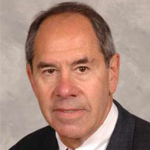Article Archive

Underutilization of cascade screening for familial hypercholesterolemia
Why cascade screening for familial hypercholesterolemia. Cascade screening in the context of dyslip- idemia refers to cholesterol testing of close relatives of individuals who fulfill genetic or phenotypic criteria for the diagnosis of famil- ial hypercholesterolemia (FH).
read more »
Familial hypercholesterolaemia (FH)
Why is cholesterol important? Cholesterol, with other fats such as triglycerides, plays a vital role in the structure and function of cells. However, too much cholesterol in the blood (hypercholesterolaemia) is a risk factor for early heart disease, heart attack and stroke. Cholesterol is transported…
read more »
PCSK9 inhibition
A raised level of low-density lipoprotein (LDL) cholesterol is one of the most important modifiable risk factors for cardiovascular disease. Despite success in recent decades in lowering LDL cholesterol with statins and other lipid-lowering drugs, a significant proportion of high risk patients fail to achieve…
read more »
Unmet clinical needs in cholesterol lowering
A high level of low-density lipoprotein (LDL) cholesterol, or ‘bad cholesterol’, is considered a major modifiable risk factor for cardiovascular disease. International guidelines state that lowering LDL cholesterol is one of most important interventions in reducing the risk of premature cardiovascular events.1-4 New insights from…
read more »
The Rationale and Design of the CASCADE FH Registry: Expert Analysis
Familial hypercholesterolemia (FH) is a genetic disease of elevated low-density lipoprotein cholesterol (LDL-C) that affects over one million people in the U.S.1 Left untreated, FH results in a 20-fold increase in the lifetime risk of premature coronary heart disease due to high LDL-C exposure from…
read more »
Do we need to re-consider cholesterol treatment in primary prevention?
High cholesterol is a major risk factor for atherosclerosis and coronary heart disease (CHD). However, many individuals with only mild to moderately elevated high cholesterol do not meet guideline criteria for treatment with statins. This poses a key question: Does prolonged exposure to only mild…
read more »
FH in the statin era: we need to do better
Despite the availability of generic statin therapy, cardiovascular disease accounts for 50% of all deaths in FH patients. Clinicians need to do better, argues Eric Bruckert, Institut E3M et IHU cardiométabolique (ICAN), Hôpital Pitié Salpêtrière, Paris, France. Familial hypercholesterolemia (FH) is a severe condition, which…
read more »
IMPROVE-IT: Trial data follow through on genetics
An ATVB editorial implies that results from IMPROVE-IT could have been predicted by considering genetics data. In a previous report from the Myocardial Infarction Genetics Consortium Investigators,1 carriage of inactivating mutations that attenuate Niemann-Pick C1-like 1 (NPC1L1) function reduced both LDL cholesterol and also protected…
read more »
Enhancing and Improving cardiovascular outcomes
Implications from IMPROVE-IT: Perspective from Anthony S. Wierzbicki* The link between low density lipoprotein-cholesterol (LDL-C) and cardiovascular disease (CVD) is well established 1 2 . Statins are the first-line drug therapy for the treatment of lipid-associated CVD risk. However the role of second line therapies…
read more »
Latest IMPROVE-IT commentary
read more »
Cascade Screening for FH: Lessons from Brazil
How can we improve on the detection and treatment of FH? PCSK9 Forum Editor Professor Frederick Raal discusses insights from a recent study in Brazil. Familial hypercholesterolemia (FH) is the most common dominantly inherited condition in humans, affecting 1:200 to 1:500 people or over 30…
read more »
A view from North America
Professor Henry Ginsberg , Columbia University, New York, USA
read more »
PCSK9 monoclonal antibody therapy: pharmacodynamics, efficacy and safety
Webcast Prof Evan Stein, University of Cincinnati Medical Center, Cincinnati, Ohio, USA overviews the clinical development of PCSK9 monoclonal antibody therapy Report from State-of-the-Art PCSK9 Science: Current understanding and therapeutic perspectives Prof Evan Stein discusses the pharmacodynamics of the two most advanced PCSK9 monoclonal antibody…
read more »
PCSK9 plasma transport and lipoprotein association
Hagai Tavori, PhD, and Sergio Fazio, MD, PhD. Knight Cardiovascular Institute, Center of Preventive Cardiology, Oregon Health and Science University, Portland, OR. PCSK9 and LDL are ligands for the LDL receptor (LDLR). The fate of the ligand-receptor complex is dependent on the ligand, with both…
read more »
AHA Scientific Sessions 2014: The Editors view of Day 2
PCSK9 Forum Editor Professor Derick Raal, University of the Witwatersrand, South Africa, discusses posters presented to date. Since the arrival of the PCSK9 inhibitors, there has been a resurgence of interest in lipids in the poster sessions with a dedicated “lipid lane” which was very…
read more »
Is there a need for a unified definition for FH?
2014 FH Global Summit: 13-14 October, New York, USA: FH is clearly underdiagnosed and undertreated in the majority of countries.1 Given this status quo, would the development of a unified global definition of FH offer advantages for detection, management and health policy? In the FH…
read more »
Not only lower BUT but SOONER is better
2014 FH Global Summit: 13-14 October, New York, USA FH is highly treatable: lowering LDL-C helps in managing the disease process. Clearly, the focus for FH care needs to move from the acute setting to prevention. Identifying FH sooner rather than later is optimal for…
read more »
Overturning the 1%…Bridging the gaps in care
2014 FH Global Summit: 13-14 October, New York, USA: Familial hypercholesterolaemia (FH) is a major clinical challenge for the 21st century. The European Atherosclerosis Society Consensus Panel has already made the case for FH being one of the most common inherited conditions, affecting about one…
read more »
Mind the Gap: How can we address the challenges in FH?
2014 FH Global Summit: 13-14 October, New York, USA Screening for FH needs new impetus. Family history and an elevated LDL-C are the two key screening criteria for suspected FH. The obvious role for screening for suspected FH lies with primary care. Insights from the…
read more »







